Shifting Mindsets: Gender Integration Training Sparks Change in Niger
In Niger and around the world, health emergencies often exacerbate existing gender inequalities.[1] Women, especially in rural areas, frequently bear the brunt of these crises due to their caregiving roles and limited access to health information. Additionally, certain vulnerable groups, including children and the elderly, can be overlooked in emergency response strategies if risk communication and community engagement (RCCE) programs do not use gender-sensitive approaches.
Recognizing this gap, Niger’s national leadership, including the Ministry of Public Health, Population and Social Affairs (MPHPSA), alongside regional actors in Niamey, Tahoua, and Zinder, prioritized gender equity and human rights in their health emergency response plans. This initiative aligns with Niger’s National RCCE Strategy for 2023–2026, underscoring how gender and social inclusion ensures effective epidemic prevention and management.
From Limited Understanding to Broader Insight
Many training participants previously saw gender as a simple binary concept: something referring solely to men and women. But this training challenged those assumptions, opening participants’ eyes to a much broader understanding of gender that includes roles, dynamics, and the diverse needs of 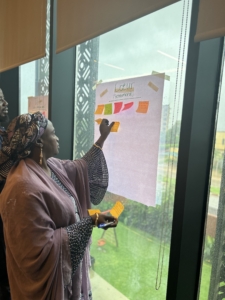 different groups in society.
different groups in society.
As one participant, Ali Mamane, a Health Communicator with the Department of Archives, Information, Communication and Public Relations at the MPHPSA, reflected, “This training has given me a better understanding of gender in all its dimensions. For me, gender used to mean only men and women.” His sentiment was echoed by others, highlighting just how transformative the experience was for those involved.
Adamou Balkissa Elhadj Saidou, a Hygiene Inspector with the Department of Public Hygiene and Environmental Health at the MPHPSA, noted, “Before this training, I overlooked the integration of gender into projects and programs, and my perception of gender was limited to the concept of biological basis.”
Building on Success from Guinea: A Comprehensive Approach to Gender Integration
The journey toward gender-integrated RCCE training began in Guinea, where Breakthrough ACTION piloted a curriculum designed to promote equitable responses to health emergencies. The success of the Guinea training inspired its expansion to Niger, where project staff tailored the curriculum to fit the local context while maintaining its core objective: fostering a transformative shift in how project implementers consider gender in RCCE and health emergency responses.
The training emphasized integrating gender at every stage of a health project—from conception and development to implementation and evaluation—leading to more effective and inclusive interventions. Gargara Moustapha Saly, noted, “I was most impressed by the multiple ways in which gender can be taken into consideration from the beginning to the end of the project.” Saly is the Head of the Wildlife, Hunting, and Protected Areas Division within the Department for the Environment and the Fight against Desertification in Zinder.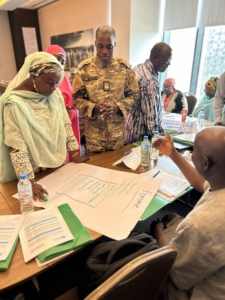
This comprehensive approach inspired many participants to apply what they’ve learned, including Saidou, who proposed including a gender integration training into the 2025 Annual Action Plan for her department at the MPHPSA, a move toward institutionalizing these practices within the public health sector of Niger.
Measurable Impact: Results from the Training
The effectiveness of the training was clear in the results of the pretests and posttests, which revealed a significant increase in participants’ knowledge. Specifically, results demonstrated an improved understanding of key concepts such as “gender,” “gender norms,” “unconscious bias,” and the different phases of a project cycle. Participants also expressed high satisfaction with the training, with 100% stating that it was very useful for them. While the majority felt the training was the right length, some (27%) wished it had been longer, indicating a strong desire for even more in-depth exploration of the topics covered. Participants mostly (80%) felt the training met all four objectives.
Long-Term Impact of Gender Integration
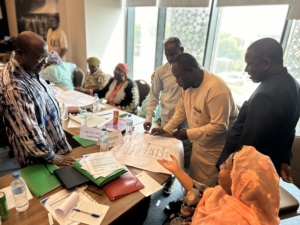 Participants left the training not only with new knowledge but also with a conviction that integrating gender into health programs can lead to more sustainable outcomes. Ali Safia Alfou, Community Health Department Manager within the MPHPSA, commented, “Gender integration in our projects and programs contributes effectively to the success of our interventions in the long term and will have more sustainable outcomes.”
Participants left the training not only with new knowledge but also with a conviction that integrating gender into health programs can lead to more sustainable outcomes. Ali Safia Alfou, Community Health Department Manager within the MPHPSA, commented, “Gender integration in our projects and programs contributes effectively to the success of our interventions in the long term and will have more sustainable outcomes.”
This shift in thinking represents a major step forward for public health in Niger, where the needs of different social groups are often diverse, and the stakes during health emergencies are high. By ensuring RCCE and other health actors consider gender dynamics the lifecycle their activities, participants now see a clearer path to more inclusive, equitable, and ultimately successful RCCE initiatives.
Through this training, Breakthrough ACTION has laid the groundwork for long-lasting change in Niger’s approach to RCCE and epidemic response and preparedness, equipping key actors with the tools to implement gender-sensitive interventions that will better serve all communities in times of crisis.
By: Antonia Morzenti, Senior Program Officer
[1] Aguilar-Palacio, I., Obón-Azuara, B., Castel-Feced, S., Malo, S., Teresa, J., & Rabanaque, M. J. (2024). Gender health care inequalities in health crisis: When uncertainty can lead to inequality. Archives of Public Health, 82, 46. https://doi.org/10.1186/s13690-024-01276-7
[2] Nielsen, M. Women and girls in emergencies. (2023). CARE Danmark. https://care.at/wp-content/uploads/2023/04/CARE_Women-and-girls-in-emergencies_2018.pdf

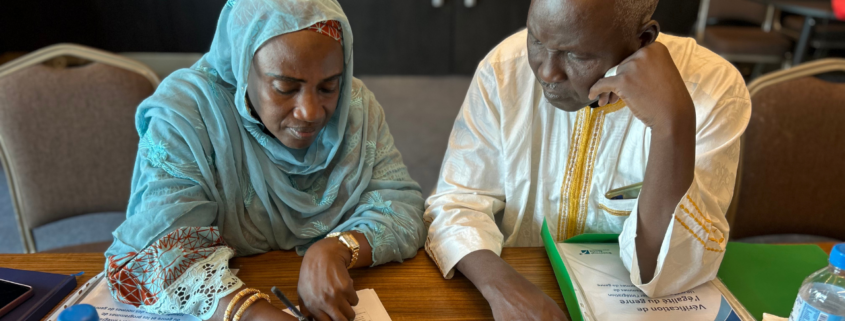
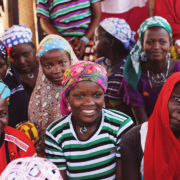 Cambey Mikush/Photoshare
Cambey Mikush/Photoshare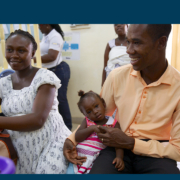 Sarah Hoibak/VectorWorks/Photoshare
Sarah Hoibak/VectorWorks/Photoshare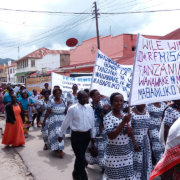 Rebekah Munnikhuysen/US Peace Corps/Photoshare
Rebekah Munnikhuysen/US Peace Corps/Photoshare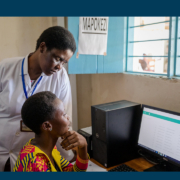 Rachel Chilton/USAID/Flickr
Rachel Chilton/USAID/Flickr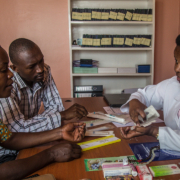 Yagazie Emezi/Getty Images/Images of Empowerment
Yagazie Emezi/Getty Images/Images of Empowerment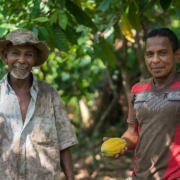 USAID/Flickr
USAID/Flickr